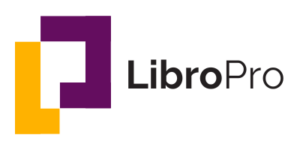In today’s fast-paced business environment, having the right accounting software is crucial for ensuring financial accuracy, efficiency, and compliance. For small and medium-sized business owners, the selection process can be overwhelming, given the multitude of options available in the market. At LibroPro, we understand the importance of selecting accounting software that aligns with your unique business needs. This article will explore key factors to consider when choosing the right accounting software and how it can streamline your financial management.

1. Identify Your Business Needs
Before diving into software options, it is crucial to identify your specific business needs. Consider the following questions:
- What are the primary tasks you need the software to handle? For instance, will it need to manage invoicing, payroll, or tax filings?
- How many users will require access to the software? If you anticipate growing your team in the future, ensure the software can accommodate additional users without significant cost increases.
- Do you need industry-specific features? Certain industries may require specialized tools (e.g., construction management, inventory tracking) that standard accounting software may not provide.
Taking the time to assess your business’s unique requirements will help you narrow down your options and focus on software specifically designed for your operations.
2. User-Friendly Interface
The usability of accounting software is critical, especially for those who may not have accounting expertise. A user-friendly interface ensures that you and your team can navigate the software with ease, reducing the learning curve that often comes with new systems. Look for software that offers:
- Intuitive dashboards that clearly display key financial metrics.
- Simple navigation that allows for quick access to various features.
- Easy-to-understand reporting tools.
A user-friendly system will streamline your processes and enhance overall productivity, allowing you to focus on financial management instead of struggling with software complexities.
3. Integration Capabilities
Your accounting software should seamlessly integrate with the other tools and systems your business utilizes. This includes applications for customer relationship management (CRM), inventory management, and e-commerce platforms. Integration is essential for reducing manual data entry, maintaining accurate records, and ensuring consistent workflows.
When assessing software options, inquire about their integration capabilities. Many modern accounting systems offer APIs (Application Programming Interfaces) that allow for easy connection to third-party tools, expanding your software’s functionality and performance.
4. Cost and Pricing Structure
Cost is always a factor when selecting accounting software. While it may be tempting to choose the cheapest option, consider the long-term value the software will provide. Accounting software pricing models can vary greatly; common structures include:
- Subscription-based Pricing: Monthly or annual payments that provide access to software updates and support.
- One-time Purchase Pricing: An upfront cost to purchase software outright, often requiring additional fees for updates and support.
Evaluate the total cost of ownership, including potential fees for additional users, features, or integrations. Consider your budget and how much you are willing to invest in a solution that meets your needs effectively.
5. Scalability
As your business grows, your accounting needs will likely evolve. Choosing software that can scale with your business is essential for ensuring long-term success. Look for systems that offer flexibility in terms of features, user access, and data storage. Some key indicators of scalability include:
- Options to add new features or modules as your business expands.
- Support for increasing numbers of transactions or data points.
- Pricing structures that accommodate growth without overwhelming costs.
Selecting software with scalability allows you to adapt to changing business requirements without needing to switch to a new system later.
6. Customer Support and Training
Reliable customer support is a critical component of any successful accounting software. Look for providers that offer responsive support options, such as:
- Live chat, phone support, or email assistance.
- Comprehensive knowledge bases or help centers with tutorials and resources.
- Training sessions or onboarding programs for new users.
Assessing the quality of customer support available can help ensure that you have the guidance you need when installing and using the software.
7. Security Features
Given the sensitive nature of financial information, robust security features are crucial when selecting accounting software. Look for software that offers:
- Data encryption to protect against unauthorized access.
- Regular security updates to safeguard against emerging cyber threats.
- User permission controls to limit access to sensitive information.
Prioritizing security features not only protects your financial data but also maintains compliance with industry regulations.
Conclusion
Choosing the right accounting software can significantly impact your business’s efficiency and financial management. By considering your unique business needs, evaluating user-friendliness, ensuring integration capabilities, and prioritizing security, you can select a solution that supports your operations and growth.
At LibroPro, we understand the challenges of managing finances for small and medium-sized businesses. If you’re seeking expert assistance in selecting and implementing the right accounting software for your needs, contact us today! Our team of knowledgeable professionals is here to guide you through the process and ensure you choose the best tools for your success.

